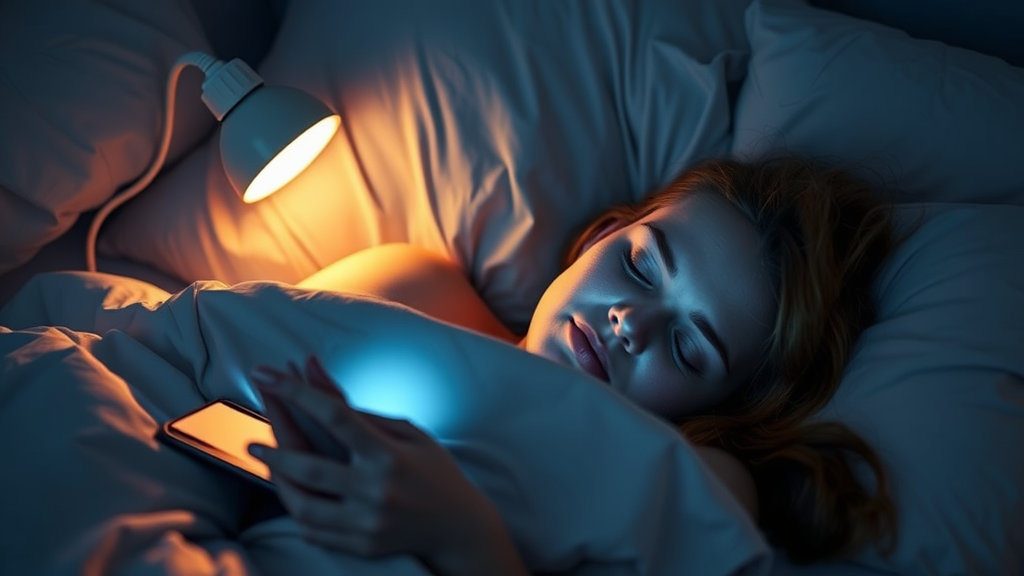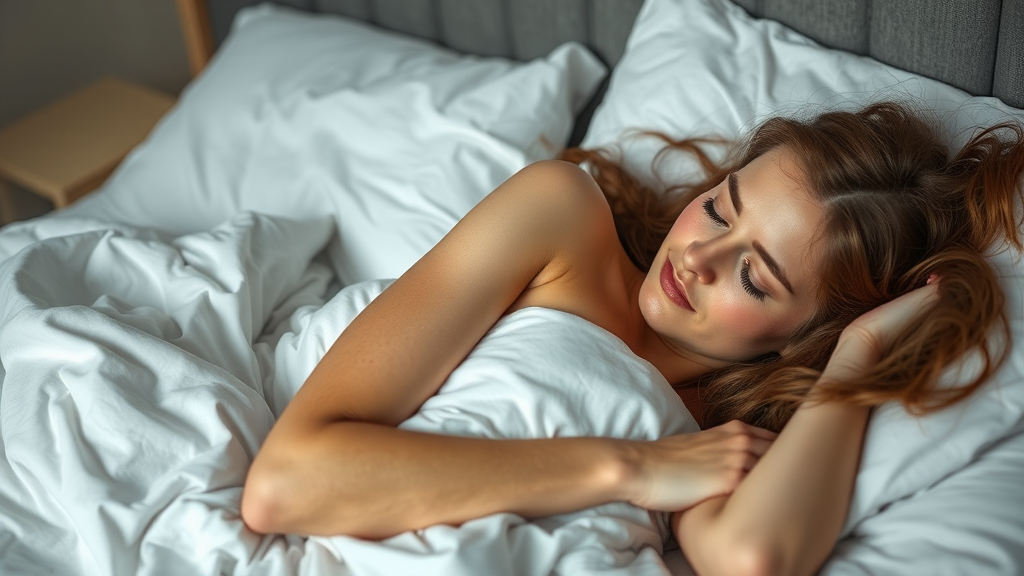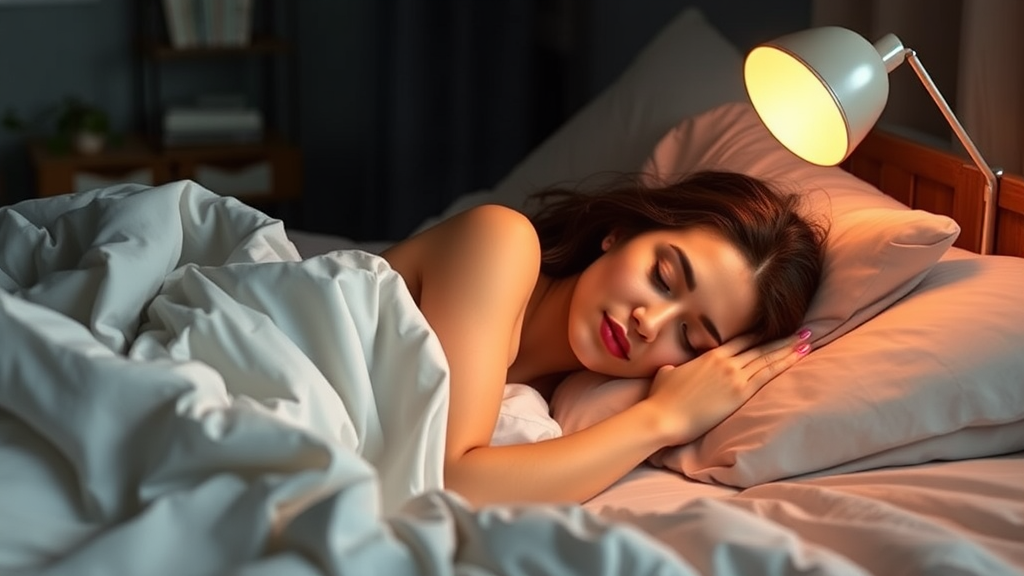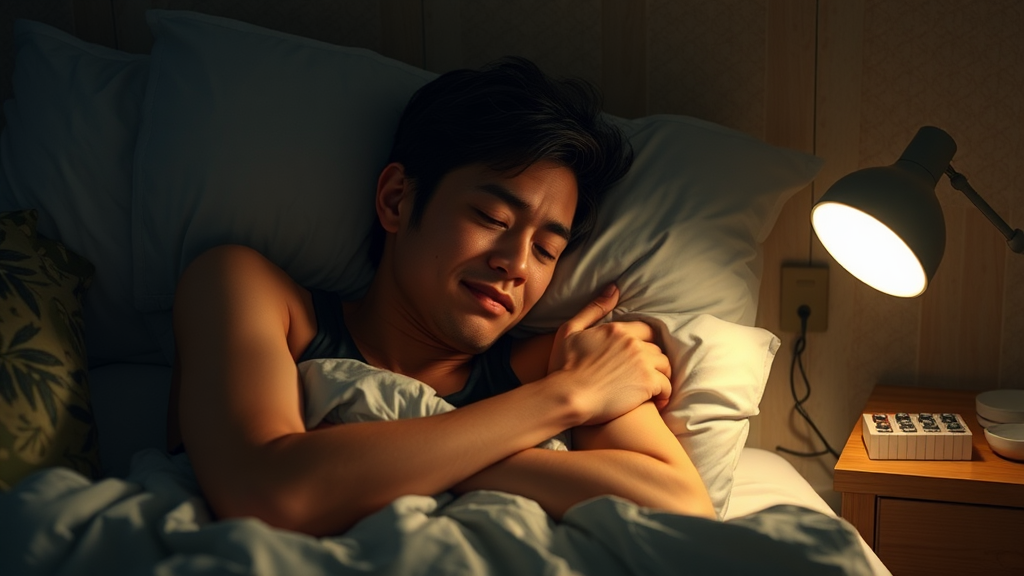The Effectiveness of Sleep Gadgets and Apps for Insomnia Relief
The struggle with insomnia is an all-too-familiar experience for many. Sleep gadgets and apps have flourished in the digital age, promising quick fixes and long-term solutions for those seeking restful nights. These tools come in various forms—from wearable devices that monitor sleep patterns to smartphone applications that provide guided meditations or soothing sounds. But the pressing question remains: do these sleep aids truly help or hinder your quest for better sleep?
Understanding Sleep Gadgets
Sleep gadgets consist of a wide range of devices designed to aid sleep. Common types include:
- Wearable Devices: Track your sleep cycles, heart rate, and even breathing patterns.
- Smart Mattresses: Adjust firmness and temperature based on your sleep preferences.
- White Noise Machines: Produce soothing sounds to block disruptive noises.
- Sleep Masks: Use technology to monitor sleep and provide feedback through gentle light signals.
The Role of Sleep Apps
Sleep apps have gained tremendous popularity among those battling insomnia. Many of these applications claim to improve sleep quality. Some of their features include:
- Tailored Sleep Sounds: Create personalized soundscapes to help you drift off.
- Sleep Tracking: Monitor patterns and offer daily insights into your sleep habits.
- Guided Meditations: Use mindfulness techniques to reduce anxiety and promote relaxation.
- Flexible Sleep Schedules: Let you set reminders for bedtime and wake up at optimal times.
Do They Help?
Many users report positive experiences with sleep gadgets and apps. Here are some ways they can assist with insomnia:
- Enhanced Awareness: Wearable devices provide insightful data about your sleep habits, helping you identify patterns and triggers of insomnia.
- Relaxation Techniques: Guided meditations and soothing sounds facilitate relaxation, making it easier to transition into sleep.
- Sleep Environment Adjustment: Smart devices can help create an optimal sleep environment by adjusting room temperature or blocking disruptive noise.
- Consistency Encouragement: Apps designed to set reminders can encourage you to establish a sleep schedule, essential for long-term sleep improvement.
Potential Drawbacks
While there are advantages to using sleep gadgets and apps, they may not work for everyone, and sometimes they can even hinder sleep. Below are some potential drawbacks:
- Dependency: Some users may become reliant on these devices, feeling unable to sleep without them.
- Information Overload: The data generated by wearables can sometimes lead to anxiety, especially for those who obsess over sleep patterns.
- Distraction: Notifications from apps or distractions from screens can cut into valuable sleep time.
- False Security: Relying solely on gadgets may prevent users from seeking professional help for underlying sleep disorders.
Research Insights
Studies have shown mixed results regarding the effectiveness of sleep gadgets and apps. A recent survey indicated the following:
| Type of Sleep Aid | Percentage Reporting Improvement |
|---|---|
| Wearable Devices | 60% |
| Sleep Apps | 55% |
| White Noise Machines | 70% |
| Smart Mattresses | 65% |
This data suggests that while many find benefits in sleep gadgets, personal experiences vary widely. It’s essential to choose tools that suit your individual needs. You may need to experiment with several options before finding what works best for you.
Making the Right Choice
Choosing the right sleep gadgets and apps requires careful consideration. Here are some tips:
- Assess Your Needs: Determine what aspects of your sleep you’re struggling with the most.
- Research Options: Read reviews and expert articles about various devices and apps before investing.
- Start Simple: Consider starting with simpler solutions like white noise machines or meditation apps before investing in more complex gadgets.
- Listen to Your Body: Pay attention to how your body reacts to using these tools, and don’t hesitate to stop if they don’t feel beneficial.
Ultimately, whether sleep gadgets and apps help or hinder may depend on individual circumstances, preferences, and mindset. Consider trying various options to see what effectively addresses your insomnia, while keeping an open line of communication with healthcare professionals if the insomnia persists.
Understanding Sleep Patterns: How Technology Influences Your Rest
In today’s fast-paced world, understanding your sleep patterns is key to achieving restful nights. Many people rely on technology to help them track and improve their sleep quality. However, while gadgets and apps promise to enhance your sleep experience, they can sometimes lead to confusion or disappointment. Let’s explore how technology influences your rest, what to look out for, and whether these tools truly help.
How Sleep Patterns Work
Your sleep is divided into cycles, primarily consisting of REM (Rapid Eye Movement) and non-REM sleep. Each cycle lasts about 90 minutes, and on average, people experience four to six cycles each night. Here are the stages of sleep:
- Stage 1: Light sleep, where you’re easily awakened.
- Stage 2: A deeper sleep where your heart rate slows and body temperature drops.
- Stage 3: Deep sleep, crucial for recovery and growth.
- REM Sleep: Brain activity increases, dreaming occurs, and it’s vital for learning and memory.
Disruptions in these cycles can lead to insomnia, fatigue, and other health issues. Understanding how technology interacts with these stages can provide crucial insights into your sleep quality.
Popular Sleep Gadgets
Many devices are marketed to assist with sleep. Here are a few popular options:
- Smart Sleep Trackers: Wearable devices like smartwatches and fitness bands monitor your movement and heart rate to assess your sleep patterns.
- White Noise Machines: These produce soothing sounds to help drown out distractions, making it easier to fall asleep.
- Smart Mattresses: Some mattresses adjust firmness based on your sleep position and even track your sleep quality.
- Sleep Headphones: These allow you to listen to calming music or sounds while you drift off.
How Apps Enhance Sleep Tracking
Technology has also extended into smartphone applications designed to help track and improve your sleep. Here are some key features:
- Sleep Analytics: Many apps provide detailed insights about your sleep cycles and duration. This data can help you identify patterns and make changes.
- Relaxation Techniques: Several apps offer guided meditation and breathing exercises to reduce anxiety and promote relaxation before bed.
- Smart Alarm Systems: Some apps wake you during a light sleep phase within a set time frame, making it easier to rise in the morning.
Benefits of Using Technology for Sleep
When used wisely, technology can bring notable benefits:
- Awareness: Understanding your sleep patterns allows you to make informed changes.
- Customization: Gadgets can help tailor your sleep environment to your personal preferences.
- Consistency: Automation features can encourage consistent sleep schedules.
Potential Drawbacks of Sleep Tech
However, reliance on gadgets and apps is not without its problems:
- Over-Reliance: Constantly checking sleep metrics may create anxiety rather than alleviating it.
- Information Overload: Too much data can be overwhelming, making it challenging to interpret what works best for you.
- Cost: High-quality sleep gadgets can be expensive and may not yield the desired results for everyone.
Finding a Balance
To leverage technology for better sleep, consider these tips:
- Use technology as a tool, not a crutch. Keep your goals in mind.
- Combine tech solutions with healthy sleep habits, like maintaining a regular bedtime routine.
- Limit screen time before bed, as the blue light emitted can disrupt your natural sleep cycle.
Your journey to better sleep can be supported by the right technology, but it’s important to approach these solutions thoughtfully. Balancing gadgets and apps with natural sleep practices will ultimately lead to more restful nights.
Evaluating the Pros and Cons of Sleep Tracking Devices
In today’s fast-paced world, sleep tracking devices have surged in popularity as a means to gain insights into sleep patterns and enhance rest quality. Yet, when evaluating these devices, it’s crucial to consider both the advantages and disadvantages they offer.
The Benefits of Sleep Tracking Devices
Sleep tracking devices can provide valuable data that may help you understand your sleep better. Here are some key benefits:
- Objective Data: These devices collect objective data about your sleep cycles, duration, and quality, helping you identify potential issues.
- Awareness: Knowing how much sleep you actually get may motivate you to prioritize your sleep health.
- Sleep Improvement: Many devices offer personalized tips based on your sleep data, allowing you to take actionable steps to enhance your rest.
- Health Tracking: Sleep is closely linked to overall health; therefore, tracking it can help you spot trends related to physical or mental well-being.
- Integration: Many sleep trackers sync with other health apps and devices, providing a holistic view of your wellness.
Drawbacks of Sleep Tracking Devices
While these devices can be beneficial, they may also present challenges. Consider these potential drawbacks:
- Accuracy Issues: Not all devices are accurate; they may misinterpret data or fail to capture sleep disruptions effectively.
- Overemphasis on Data: Focusing too much on numbers can lead to anxiety about sleep quality, creating a paradox where tracking leads to stress.
- Costs: High-quality sleep tracking devices may not be affordable for everyone, potentially limiting access to their benefits.
- Battery Life: Regular charging can be a nuisance, especially if the device is uncomfortable to wear while sleeping.
- Dependence: Becoming reliant on a device may discourage intuitive listening to your body’s natural sleep signals.
How to Choose the Right Sleep Tracker
When exploring options for sleep tracking devices, consider the following criteria to find the one that best fits your needs:
- Functionality: Some devices track just sleep, while others offer features like heart rate and activity tracking.
- Comfort: It’s essential that the device is comfortable enough to wear through the night without disruption.
- Data Accuracy: Look for devices with solid reviews on their accuracy to ensure you get reliable insights.
- Battery Life: Choose a tracker with a long battery life to avoid frequent charging interruptions.
- Budget: Weigh the features against the price to ensure it fits within your financial plan.
Popular Types of Sleep Tracking Devices
Here is a table highlighting some popular types of sleep tracking devices:
| Device Type | Functionality | Pros | Cons |
|---|---|---|---|
| Smartwatches | Tracks sleep cycles, heart rate, and more. | Multi-functional; integrates with other apps. | Can be bulky; may need regular charging. |
| Fitness Trackers | Monitors activity during the day and sleep at night. | Often more affordable; encourages overall health. | May lack advanced sleep features. |
| Smart Mattresses | Tracks sleep metrics directly while you sleep. | Highly accurate; often comfortable. | Expensive; requires space for installation. |
| Mobile Apps | Uses your phone to track sleep through microphone and motion. | Free or low-cost; handy for occasional users. | Dependent on phone battery; less accurate. |
Balancing Technology with Good Sleep Hygiene
While sleep tracking devices can offer insights, they should complement rather than replace good sleep hygiene practices. To maximize your rest, ensure you’re sticking to a regular sleep schedule, creating a restful environment, and limiting exposure to screens before bed.
Evaluating sleep tracking devices in terms of their pros and cons can guide you toward making informed decisions. Their ability to provide data and promote awareness of sleep hygiene can indeed be helpful, but caution should be taken to avoid over-dependence and stress. By blending technology with healthy sleep habits, you can truly promote better sleep. Remember, the ultimate goal is quality rest, regardless of how you track it.
Natural Strategies vs. Technological Solutions for Better Sleep
In the quest for better sleep, many individuals are torn between natural strategies and technological solutions. Both approaches have their proponents, but understanding how each can assist (or hinder) your sleep can be critical in making the right choice for your lifestyle.
Natural Strategies for Better Sleep
Natural methods are often favored for their holistic benefits, addressing the root causes of sleep issues without relying on gadgets or apps. Some prominent natural strategies include:
- Establishing a Sleep Routine: Going to bed and waking up at the same time every day helps regulate your body’s internal clock. Consistency is key.
- Creating a Sleep-Friendly Environment: Dim the lights, reduce noise, and ensure your bedroom is cool. A dark, quiet environment promotes better sleep quality.
- Mindfulness and Meditation: Engaging in relaxation techniques can be beneficial. Practices like deep breathing or guided meditation reduce anxiety, making it easier to drift off.
- Herbal Remedies: Natural sleep aids like chamomile tea or valerian root can promote relaxation without the side effects associated with pharmaceuticals.
- Physical Activity: Regular exercise can enhance sleep quality. Aim for at least 30 minutes of moderate activity most days, but not too close to bedtime.
Technological Solutions for Better Sleep
On the other hand, technological solutions have gained popularity as sleep aids. These include various gadgets, apps, and devices designed to track and improve sleep patterns. Some key technological solutions are:
- Sleep Trackers: Wearable devices or bedside monitors can track your sleep cycles, heart rate, and movement. They provide valuable insights into your sleep stages and quality.
- White Noise Machines: For those who struggle with noise disturbances, white noise machines or smartphone apps can mask outside sounds and create a soothing sleeping backdrop.
- Sleep Apps: Many smartphone apps offer features like guided meditations, sleep stories, and relaxation sounds to help you wind down at night.
- Smart Mattresses: These high-tech beds adjust their firmness based on your sleeping position and body temperature, offering a customized sleep surface.
- Light Therapy Lamps: For those suffering from seasonal affective disorder (SAD) or sleep phase disorders, these lamps can simulate natural daylight to help reset your circadian rhythms.
Weighing the Pros and Cons
Before making a choice between natural strategies and technological solutions, it’s essential to consider both their advantages and limitations.
Natural Strategies
Pros:
- Generally free and accessible.
- Holistic benefits for overall wellness.
- Reduces reliance on technology, promoting a healthier lifestyle.
Cons:
- May require time and patience to see results.
- Results can be inconsistent and vary by individual.
Technological Solutions
Pros:
- Quick access to sleep tracking information and immediate feedback.
- Innovative features, such as personalized sleep improvement suggestions.
Cons:
- Can be costly, depending on the device or app.
- Over-reliance on technology may create anxiety about sleep.
Finding the Right Balance
In all honesty, there is no one-size-fits-all answer when it comes to achieving better sleep. The best approach may be to blend natural strategies with selective technological solutions. For instance, you might adopt natural sleep rituals while also utilizing a sleep tracker app to pinpoint your sleep patterns. This synergy can provide a comprehensive sleep improvement plan tailored to your needs.
Ultimately, it’s essential to listen to your body. Pay attention to what works for you. Whether you lean towards natural methods, technology, or a combination of both, the goal remains the same: achieving restful and rejuvenating sleep.
The Future of Sleep Technology: What to Expect Next
The world of sleep technology is rapidly evolving, with innovative gadgets and applications emerging to help us get the rest we desperately need. As more people struggle with sleep disorders, technology is rising to provide solutions. From smart beds to sleep-tracking apps, there’s a lot to consider about the future of these technologies.
Smart Beds: The Next Generation
Smart beds are a prominent segment of sleep technology. Unlike traditional mattresses, smart beds come equipped with sensors to monitor your sleep patterns. Advanced models can adjust the firmness based on your body position, helping reduce discomfort and improve sleep quality. As technology advances, we can expect these beds to integrate even more features:
- Real-time health tracking, including heart rate and breathing patterns.
- Personalized sleep recommendations based on your data.
- Integration with other smart home devices for a better sleeping environment.
Wearable Sleep Trackers
Wearable technology has been gaining traction, and sleep trackers are at the forefront of this trend. Devices like smartwatches and fitness bands now come equipped with features to monitor your sleep cycle. The future of these devices may include:
- More accurate sleep cycle prediction algorithms.
- Better integration with health apps to provide insights into overall wellness.
- Advanced sleep coaching based on user data.
Mobile Apps for Sleep Management
Smartphone apps are becoming go-to solutions for managing sleep issues. From relaxation techniques to white noise generators, these apps have it all. Some potential developments include:
- Artificial Intelligence (AI) to personalize sleep plans.
- Virtual reality integration for immersive relaxation experiences.
- Enhanced community features for sharing tips and insights with other users.
Sleep Environments and Climate Control
The environment where you sleep plays a significant role in the quality of your rest. Advances in sleep technology are paving the way for smarter sleep environments. Here are some features expected to emerge:
- Smart thermostats that adjust temperature for optimal sleep conditions.
- Lighting systems that mimic natural light patterns to help regulate circadian rhythms.
- Air purifiers that work in tandem with sleep monitoring technology.
The Rise of Teletherapy
With increasing awareness about sleep disorders, teletherapy is making a significant impact. Many apps now provide access to sleep specialists through virtual consultations. Future developments may include:
- More personalized therapeutic interventions based on real-time data.
- Integration of cognitive behavioral therapy (CBT) techniques in apps.
- Gamification elements to encourage better sleeping habits.
Challenges Ahead
Though the prospects of sleep technology are exciting, challenges remain. Privacy and data security are major concerns as these gadgets track sensitive health information. Many users worry about how their data is stored and used. Sleep tech companies must prioritize transparency to build trust among users.
The Importance of Research
As the field grows, more research into the effectiveness of these technologies will become essential. Continuous studies can help determine which devices and methods genuinely improve sleep quality. Manufacturers will likely focus on collaborating with sleep researchers for better product development.
Potential Future Trends
Here are some trends we may witness:
| Trend | Description |
|---|---|
| Personalization | Customized plans based on individual sleep data and needs. |
| Integration | Seamless connection between various sleep technologies and health apps. |
| Affordability | More affordable options making sleep technology accessible to everyone. |
The future of sleep technology holds a lot of promise. With continuous innovation and enhanced understanding of sleep health, the gadgets and apps on the horizon may offer significant relief for those struggling with insomnia and other sleep disturbances. The key will be to balance technological advancements with ethical considerations to create a safer and more effective sleeping environment.
Conclusion
As we’ve explored, the effectiveness of sleep gadgets and apps for insomnia relief is a topic that warrants careful consideration. While many users report positive experiences, the impact of technology on sleep patterns can be complex. Some people find that sleep tracking devices provide valuable insights, helping them recognize trends and triggers that affect their rest. On the other hand, reliance on these gadgets can sometimes lead to increased anxiety, potentially making insomnia worse.
Moreover, the advantages of utilizing technology must be weighed against the drawbacks it may introduce. For instance, while tracking your sleep can offer data-driven strategies for improvement, it can also lead to over-analysis and restlessness. It’s crucial to find a balance between using technological solutions and relying on natural strategies, such as creating a calming bedtime routine or practicing mindfulness techniques.
Looking ahead, the future of sleep technology appears promising. Innovations are constantly emerging, designed to interact more seamlessly with our daily lives and enhance our overall sleep quality. However, understanding your individual needs and experimenting with various approaches—whether technological or natural—remains essential.
To truly tackle insomnia, consider integrating both sleep gadgets and traditional methods into your routine. This blended approach can foster a healthier sleep environment, leading to restorative nights and better overall well-being. Remember, you know your body best, so listen to it and adjust your strategies accordingly. Sleep improvement is a personal journey, and finding what works for you will be key to overcoming insomnia.



